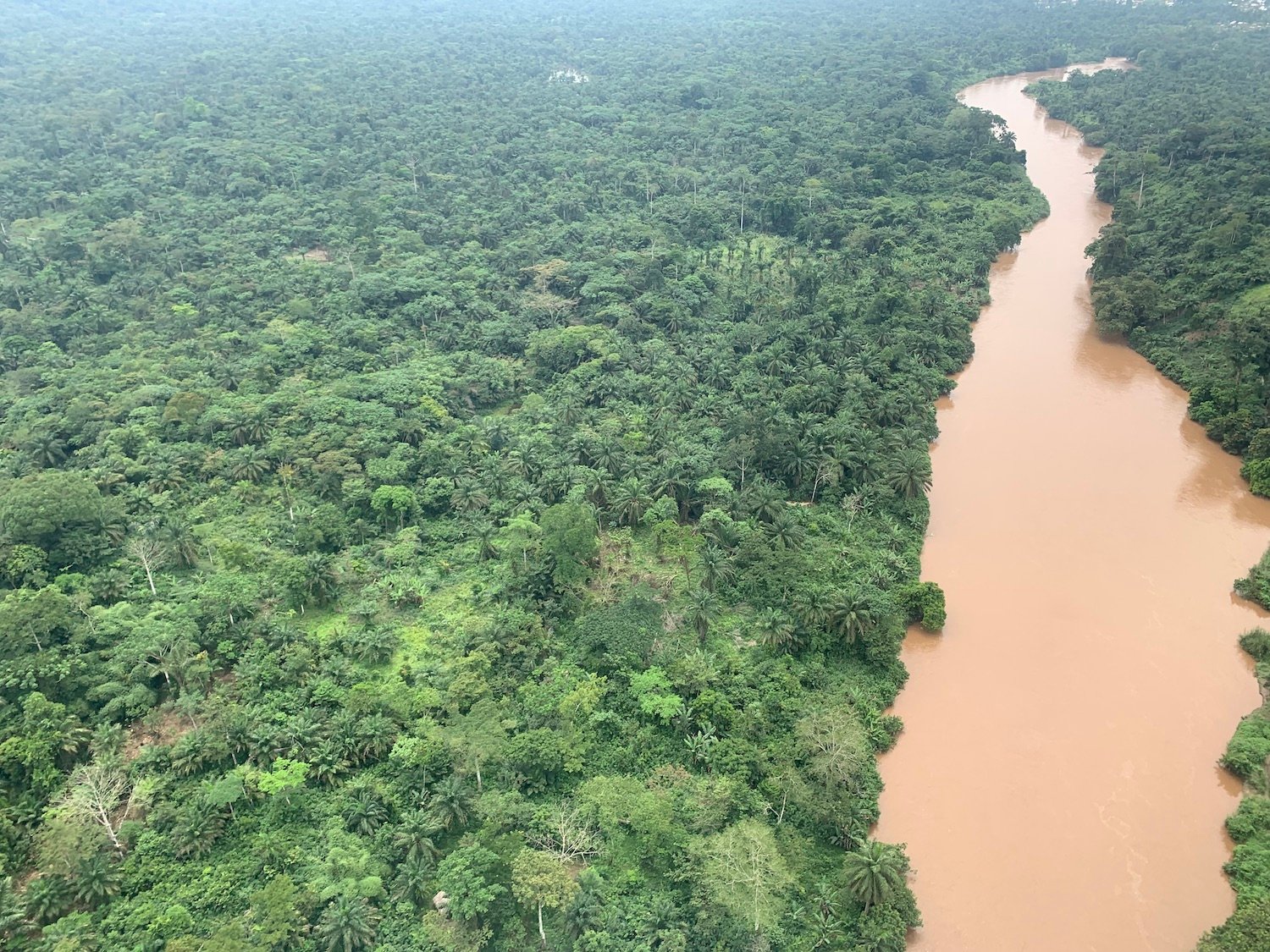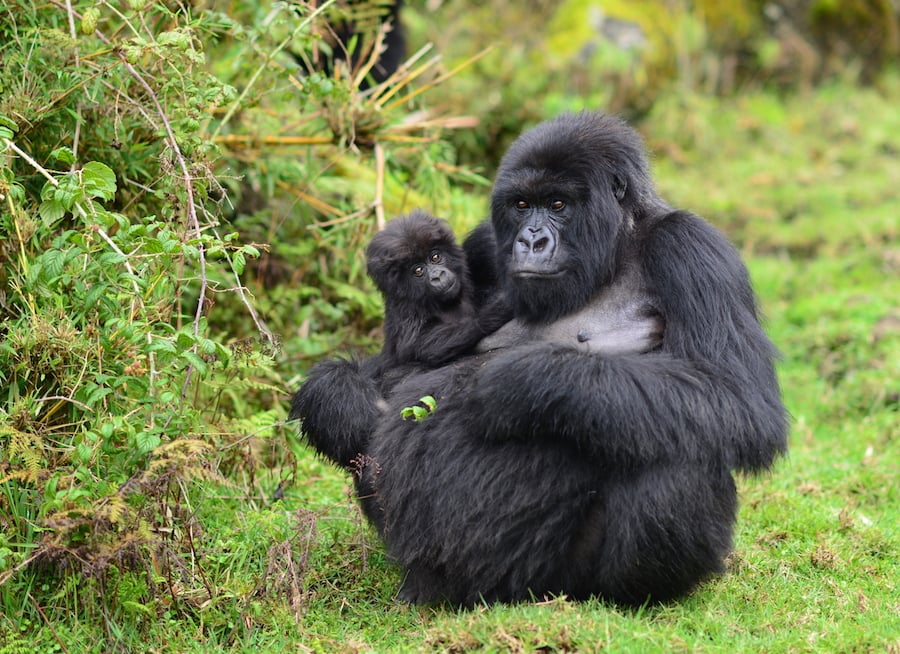Our Rwanda-based communication assistant Cedric Ujeneza recently spent time at our remote field site in the Democratic Republic of the Congo – the Nkuba Conservation Area (NCA), which now covers more than 2,400 square kilometers and is home to hundreds of gorillas, chimpanzees and other important wildlife. This story is part of a series by Cedric, as he observed our work there protecting this critical forest and addressing the basic needs of the surrounding communities.
From hunter to gorilla protector

Dressed in the Fossey Fund’s field uniform and a pair of boots, Isoke Tanganyika Meshe is ready to head deep into the Nkuba forest, where he will be based in one of our camps for the next two weeks. Together with a team of colleagues, Isoke will be following the critically endangered Grauer’s gorillas and helping to save a species in a community-managed forest that formally had no protection.
Isoke is one of more than 70 trackers we now have in this area, working in two-week rotations in remote forests. All are from Nkuba village. They protect and monitor gorilla groups at a one-day distance, since these gorillas are not habituated to the presence of humans. They also monitor other animals and plants in the forest, destroy snares set by poachers and check for other illegal activities.
Isoke is one of our most-experienced trackers here, having started with us the same year we launched our work in Nkuba – 2012. That year represented a drastic change for Isoke and his family, since before that he used to hunt in the forest for food and to support his family, but still faced extreme poverty.
“I never imagined I would become a tracker,” says Isoke. “Now that I am, I regret the time when I killed wildlife. At the time, I didn’t know of any other way to survive, to provide food for my family or to pay school fees for my children.”
However, after learning about the importance of the forest and why it needs protection, Isoke stopped hunting and was then hired as a tracker by the Fossey Fund. This changed his life in many ways.
Learning how to be a tracker was hard work, Isoke says, but he was happy to put in the effort and to focus on the protection of the environment and animals.
“Before becoming a tracker, I didn’t even have a place to live. Now I have a house and enough money to pay for all of my children’s schooling and for health insurance. My oldest child is attending university, and others are in secondary and primary schools.”
Teaching others about conservation
Isoke says now that he realizes the importance of conservation, he is involved in trying to teach other poachers in the community to make a change and consider working in conservation.
And Isoke is not alone among our trackers trying to help educate others. Tracker Jean Babika Bumani says he is also proud to encourage people in the community to cooperate in environmental protection.
“In addition to working as a tracker, I take time to talk to those who still go to the forest to poach animals, as I once did. Being a tracker is a good career – I can support my family, educate my children and get health services – while doing good work to protect the forest,” says Jean.
“The importance of this forest cannot be overstated,” Isoke says. “It provides habitat for so many species of animals and plants. I am honored to be able to contribute to its protection.”






